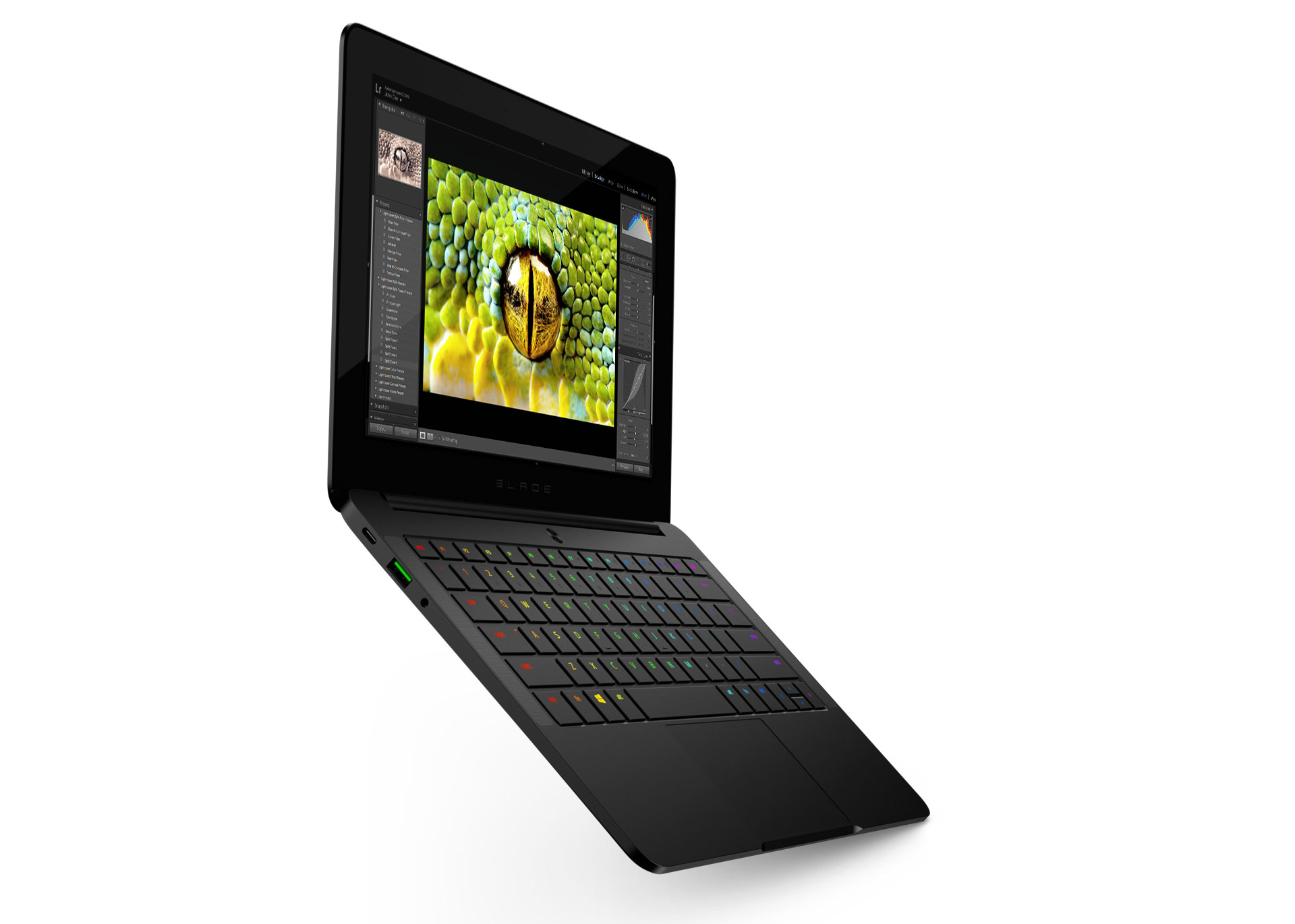![635969375050362261-razer-blade-creative-perfection-bg.jpg [image : 83400356]](http://www.gannett-cdn.com/media/2016/04/22/USATODAY/USATODAY/635969375050362261-razer-blade-creative-perfection-bg.jpg)
Razer, best known in gaming circles for its accessories and sponsorship of competitive gaming competitions, is pushing hard to sell laptops even non-gamers could love.
The 11-year-old Irvine, Calif.-based company's recently released Razer Blade Stealth is built for traditional PC users as well as gamers. The specs and design — featuring high resolution touchscreens, powerful Intel processors and a Chroma keyboard that allows keys to be backlit in different colors — plus $999 starting price, put it in the market to compete with Apple’s 13-inch MacBook Air and Dell's XPS 13.
“What we want to do is to make sure that there is a Razer Blade Stealth in every Starbucks, in every office, in every home,” Min-Liang Tan, Razer’s co-founder and CEO, told USA TODAY. “And slowly but surely hopefully convert as many of them to PC gamers as we can.”
To that end, Razer has begun opening retail stores à la Apple and Microsoft. The PC maker on Saturday will open its first U.S. RazerStore, a standalone flagship outlet in San Francisco store on Saturday. The first RazerStores opened in Taipei, Taiwan and Manila, Phillippines, last year and earlier this year in Bangkok, Thailand.
![RazerStore-Philippines-1.jpg [image : 84415486]](http://www.gannett-cdn.com/media/2016/05/15/USATODAY/USATODAY/635989173867563027-RazerStore-Philippines-1.jpg)
The 1,300-square-foot concept store in the Westfield San Francisco Centre will have more than 20 PC and console gaming stations. A 16-foot by 9-foot screen will display video seen by those inside and outside the store. San Francisco, Tan said, "is a unique global epicenter of creativity, technology and entertainment, and it’s our home town, so creating a phenomenal environment for gamers here was a very special endeavor.”
Its strategy of expanding into the traditional PC market comes as the industry comes to grip with a prolonged decline in demand.
Global PC shipments in the first quarter fell to their lowest level since 2007, according to research firm Gartner. It was the sixth-straight quarter of falling shipments.
But the typical PC user isn't the end goal for Razer. Instead, it wants to use its new laptop to attract future gamers. A $499 Core accessory allows gamers to add an external graphics card.
"The decline in the PC market is primarily attributable to the fact that tablets do a lot of the same things that people use PCs for, particularly casual use," says Michael Pachter, an analyst at Wedbush Securities. But you can't substitute a tablet for workspace computing or gaming, he points out.
In fact, gaming on PCs is on the rise, a trend reflected in the recent quarterly report of Nvidia. The graphics chipmaker reported a jump in profits, boosted by demand for its gaming-focused products.
"Razer is managing the growth of PC gaming brilliantly by offering a gaming laptop. Anyone who actually needs a PC for productivity is a target, and Razer has a gamer-friendly (and gamer-first) strategy," Pachter said in an email interview.
It's not alone — Origin PC, based in Miami, and Maingear Inc., based in New Jersey, also specifically target the PC gaming market. Larger computer makers including Dell, through its Alienware brand, Asus and Lenovo also make PCs targeted towards gamers.
It makes sense for manufacturers to devote their attention to PC gamers. The market for PC gaming is larger than even that of mobile gaming, at $32 billion in 2015 compared with mobile’s $25 billion, according to gaming research firm SuperData Research.
This potential has attracted backers including Intel Capital, IDG-Accel, and a subsidiary of Singapore's Temasek. Earlier this year, Razer completed a Series C funding round that valued the company at $1.5 billion.
![Razer's Blade Stealth and Core [image : 84401534]](http://www.gannett-cdn.com/media/2016/05/14/USATODAY/USATODAY/635988644949529466-razer-blade-stealth-and-core.png)
“What we’re trying to do is really try and disrupt the PC market,” adds Tan. “We expect to be one of the top OEMs over the next couple of years, globally. Which is a huge surprise, I think, to the entire market because the PC market has kind of been in this state of decline of sorts.”
Through this prism, Tan sees the PC market not as one at the end of its life but one in desperate need of innovation akin to how the MP3 player market needed the iPod to start its rebirth 15 years ago.
“The crazy thing is that the only thing which is growing the PC market, whether it's PC laptops or PC desktops, is gaming” for both desktop PCs and laptops, says Tan.
Razer execs have also marketed the company against the grain.
The company doesn’t run traditional TV ads, leveraging its strong presence in the competitive gaming arena known as eSports, a market valued at $747 million by SuperData Research. It's become known for its gaming accessories and prominent sponsorships in gaming tournaments around the world.
![Big players enter $747M 'eSports' market [oembed : 83400224] [oembed : 83400224] [oembed : 83400224] [oembed : 83400224] [oembed : 83400224] [oembed : 83400224] [oembed : 83400224] [oembed : 83400224] [oembed : 83400224] [oembed : 83400224] [oembed : 83400224] [oembed : 83400224] [oembed : 83400224] [oembed : 83400224] [oembed : 83400224] [oembed : 83400224] [oembed : 83400224] [oembed : 83400224] [oembed : 83400224] [oembed : 83400224] [oembed : 83400224] [oembed : 83400224] [oembed : 83400224] [oembed : 83400224] [oembed : 83400224] [oembed : 83400224] [oembed : 83400224] [oembed : 83400224] [oembed : 83400224] [oembed : 83400224] [oembed : 83400224]](/Portals/_default/Skins/PrestoLegacy/CommonCss/images/smartembed.png)
It is through this visibility that Razer has amassed a large and passionate social media following, with over 7.1 million likes on Facebook, second to Dell’s 9 million when compared with traditional PC makers. Its 2.3 million followers on Twitter are larger than the followers HP, Lenovo and Dell’s accounts combined.
This connected, enthusiastic gamer base has made Tan a bit of a social media star, with 244,000 followers on Twitter and over 537,000 "Likes" on his public Facebook page.
“We don’t look at it as a form of marketing, we just look at it as a form of getting in touch with our users and chatting with them,” says Tan. “We don’t go through a formal kind of process of doing it, and it's probably just ourselves and being gamers ourselves and being authentic ourselves and chatting with the user base.”
“That makes it a lot easier.”
Follow Eli Blumenthal on Twitter @eliblumenthal


